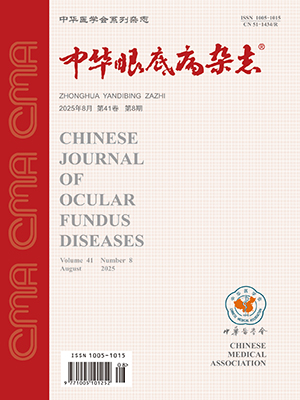Objective To evaluate the correlation between antiphospholipid (APLA) antibodies and retinal vein occlusion (RVO). Methods A computerized search was conducted in the Pubmed, Chinese Biological Medicine Database, China National Knowledge Infrastructure, VIP database, Wanfang Database combined with manually searching of literature reference proceedings. The search time was ranged from establishment of each database to August 1st, 2012. After the data extraction, quality of RCT was assessed. The meta analysis was performed by Stata 11.0. Results In total, 12 case-control studies (1324 subjects) that fulfilled the eligibility criteria were included in the meta-analysis involving 505 patients in RVO group and 819 subjects in control group. The odds ratio (OR) and 95% confidence interval (CI) of APLA, anticardiolipin antibodies (ACA), lupus coagulation inhibitor and RVO were 5.01 and 3.33 - 7.53,4.38 and 2.38 - 8.05, 1.72 and 0.73 - .88, 6.02 and 2.06 - 17.63, respectively. The OR and 95% CI of APLA, ACA, lupus coagulation inhibitor and branch RVO were 4.22 and 1.67 - 10.63, 3.69 and 1.32 - 10.32, 2.07 and 0.79 - 5.41, respectively. Conclusions APLA may increase the rick of RVO, especially ACA has a prediction function to RVO. It is necessary to screening for APLA in RVO patients.
Citation: DAI Yanli,WEI Shihui,HUANG Houbin.. A meta-analysis of correlation between antiphospholipid antibodies and retinal vein occlusion. Chinese Journal of Ocular Fundus Diseases, 2013, 29(2): 188-192. doi: Copy
Copyright © the editorial department of Chinese Journal of Ocular Fundus Diseases of West China Medical Publisher. All rights reserved




